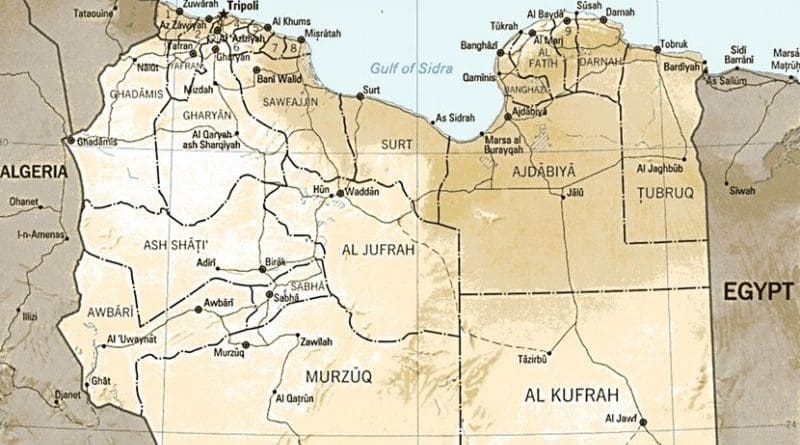No Hope, No Peace: Libya Still Faces A Deadlock – OpEd
The future of Libya still faces an impasse after clashes between two Libyan militias followed a cascade of destabilizing events last week, so that roadmap to actually result in elections will not be completed because there is more internal turmoil.
The fighting between two militias in Tripoli killed at least 55 people, and the Speaker of Libya’s House of Representatives (HoR) and the High Council of State (HCS) agreed to a new and deeply flawed political roadmap to elections that would begin by replacing Libyan interim Prime Minister Abdul Hamid Dbeibah with someone more to their liking. The UN, major international actors, and Libyan political leaders would all need to decide on a new and deeply flawed political roadmap to elections that would begin by replacing Libya’s interim government and the United Nations for Libya. Abdoulaye Bathily called the road map unworkable and accurately predicted it would lead to violence.
The Deputy Head of the Libyan Presidential Council, Mossa Al-Koni, participated in the 15th BRICS Summit, and they added that we need to work for cooperation with the countries of the first world to overcome their economic crises and achieve sustainable development through fair financing and strategic partnership between Africa and BRIC.
The Summit aims to realize the full potential of BRICS for comprehensive global economic recovery and sustainable development, in addition to promoting peace operations and protecting the environment.
There are many people living in precarious conditions in urban settings, and the international medical humanitarian organization Médecins Sans Frontières/Doctors Without Borders (MSF) mentions that it will end its medical activities in Tripoli, Libya, which may face another problem in that sector of healthcare for immigrants, asylum seekers, and refugees, but they will support the National program on Tuberculosis and Abu-Setta Hospital for Respiratory Diseases in Tripoli from now to 2023.
This decision to close its medical activities was due to a process of financial reprioritisation and followed an extensive review of its humanitarian responses globally. MSF’s health support in Tripoli since 2016 has included primary medical care and the facilitation of access to protection services. At the end, Tripoli will become an increasingly challenging environment for international organisations.
Accordingly, the United States must address its readiness to support the formation of a caretaker government in Libya whose sole mission is to lead the country to hold fair elections. The House of Representatives, the High Council of State, the Government of National Unity, the Army, and the Presidential Council must unify their ranks and make the necessary concessions to hold the election.
The elections should be held as soon as possible by supporting the work of the 6 + 6 committee and reaching an agreement that enables everyone to compete fairly. While the efforts of the 5 + 5 military committee are to withdraw mercenaries and foreign fighters, they should unify joint patrols in the south to secure Libya’s southern borders. While the Central Bank of Libya and the establishment of the High Financial Committee ensure that no party controls the public’s spending and the fair distribution of wealth,
Finally, the condemnation of the fighting in Tripoli last week still gives no hope for peace because of the outbreak of violence in Libya and the region, and that will continue. the armed factions in Libya, we hope the election starts to avoid any actions that might lead to an expansion of violence in Sudan or instability in Niger.

